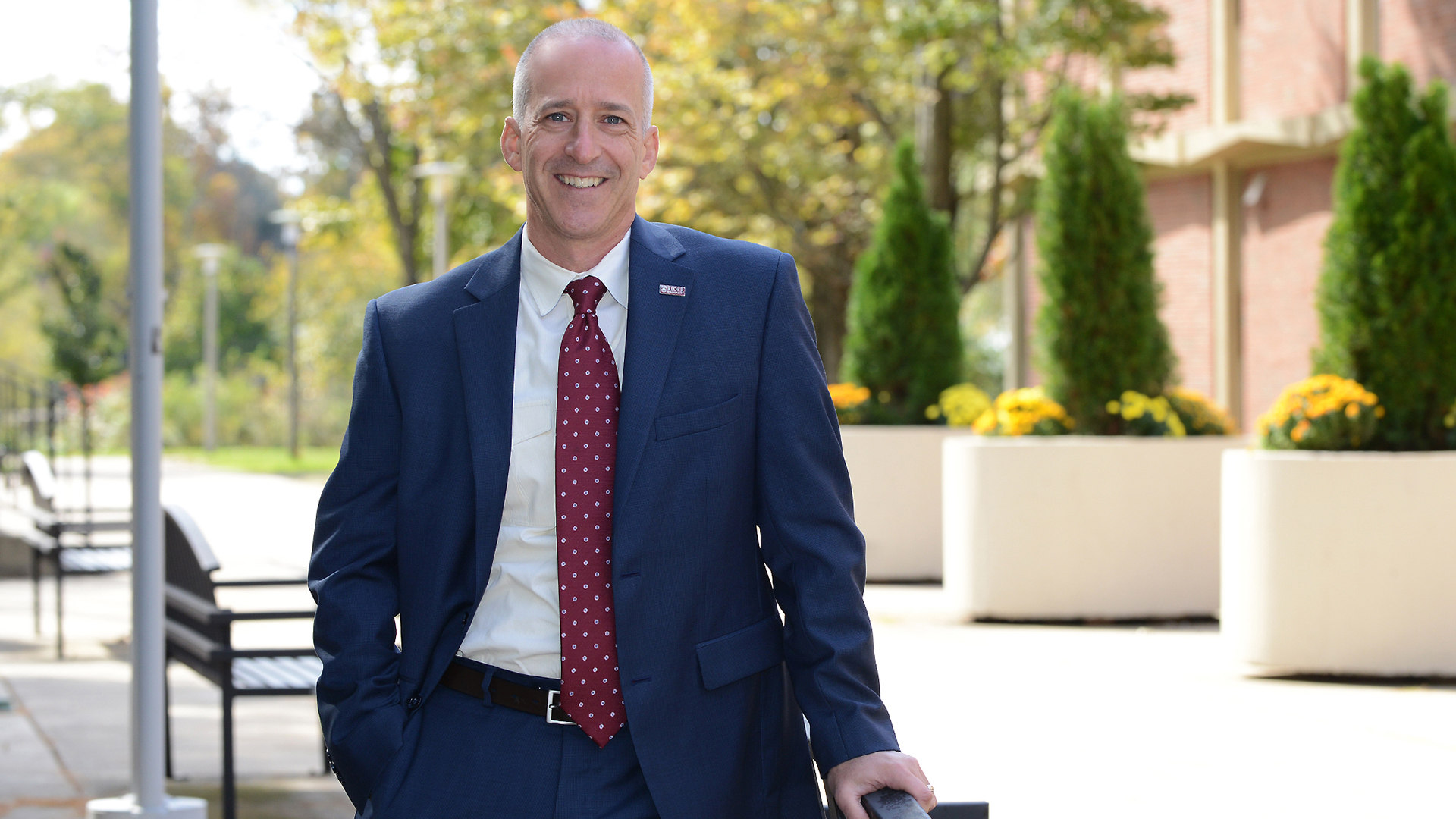Wednesday, Dec 7, 2016
by Adam Grybowski
After serving as associate dean for seven years, Jonathan Millen was appointed the new dean of Rider University’s College of Liberal Arts and Sciences (CLAS) on July 1, 2016.
“The leadership he has demonstrated in representing the College is exactly what is needed moving forward,” said Provost and Vice President for Academic Affairs DonnaJean Fredeen in an announcement to faculty and staff. “He has excellent relationships with faculty and staff across campuses, an inspiring leadership style, and a true talent for writing, teaching and fostering positive change.”
That change will include strengthening the College’s identity and planning for strategic growth at the same time the University as a whole is undertaking a new strategic plan.
In his new position, Millen will build on 10 years of administrative leadership and 25 years as a teacher and scholar at Rider. He joined the University in 1991, shortly before completing his doctorate from the University of Massachusetts, Amherst in 1992. He was recently elected to the board of the Council of Colleges of Arts and Sciences (CCAS), an organization of deans from across American higher education. CCAS connects deans with each other, provides professional development, serves as a forum for discussing issues in higher education and advocates for liberal learning.
Midway through his first semester as dean, Millen took some time to discuss his view of the liberal arts and his vision for the college.
How do you view the role of the liberal arts in a college education today? How has that changed over time?
More than ever, a traditional education in the liberal arts and sciences is preparing students for great success in their lives and for meaningful contributions to their communities. We provide a foundational education across the traditional disciplines and also the very skill set that is expected of today's college graduates: critical reading and thinking, written and presentational communication, problem-solving and analysis, collaboration, and creativity.
In this context, I have seen two key areas of change. The first is the focus on transferable skills. That is, students are being encouraged to apply what they learn in one course to an assignment in another. There is a much greater emphasis on helping students to benefit from connections that can be made across the curriculum.
The second change is that having a minor or second major is now the standard. In the past, students would take elective courses they found interesting and accommodated their schedules. That approach has been replaced by students studying in a second area of emphasis. My favorite example is the biology major with a minor in dance. Here is a student pursuing two of her passions who will be a unique candidate for any future interview. We encourage all of our students to craft an educational narrative that gives them a unique story to tell.
You’ve been recognized in the past as a distinguished professor at Rider. What qualities make for a great professor?
A great professor is focused less on teaching and more on learning. A great professor is available to students, before and after class, to ensure that they are engaged with the material. A great professor has lofty expectations for student learning and then provides a supportive environment in which students can succeed. A great professor has fun, but not as much fun as the students. A great professor understands that not all of the students in class are there because they want to be.
What’s the single most important advice you have for students on succeeding at Rider?
Be engaged. Be engaged in your learning, be engaged with your professors, be engaged with your classmates, be engaged in student life, be engaged in your community.
Have you always aspired to become a college dean or did you have other ideas of where your career would take you?
I never contemplated a career in higher education administration until I was asked to be an associate dean. I always expected to spend my entire career on the faculty. After serving in that role for seven years with a wonderful mentor, I knew I was ready to take on the position of dean.
At the end of the day, how will you judge yourself to be a successful dean?
I will not judge myself to be a successful dean. I will judge the success of my college: the faculty and students, the curriculum, and the facilities. If we are able to attract and retain excellent people, provide rigorous and innovative programs of study, and do so with the necessary resources, then the college will be successful. My job is to make sure that happens.

